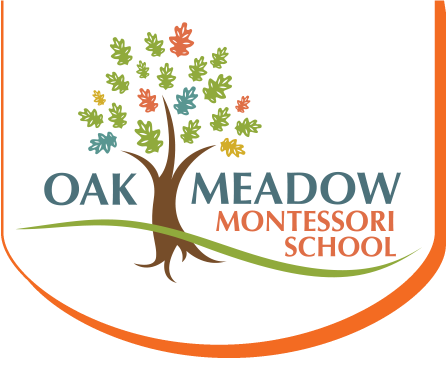“Education is undergoing a period of remarkable evolution and transformation. Never in history have families had such a diverse and expanding range of options for their students’ learning experience. With this evolution comes a range of challenges, particularly for parents and students navigating this changing landscape: new skills and knowledge required for future jobs, many of which do not exist today; shifting models of post-secondary education and college admissions standards; and dramatically falling indicators of student health and well-being.”
These are thought-provoking words from nationally acclaimed author and educational consultant Grant Lichtman. Grant will be speaking at Oak Meadow School in Littleton, MA on Tuesday night, November 12th, at 6:30 pm. The event is open to any parent who believes that education can (and must) be more relevant to the learning needs of children today.
Oak Meadow is hosting this event, co-sponsored by the Association of Independent Schools of New England (AISNE). Whether parents have a student in a public, private, or charter school, every parent will find this presentation helpful. Grant has spent the last decade traveling across the US and world, and working closely with teachers, students, and parents at some of the most innovative and inspiring schools today. Parents who attend this event will leave with ideas and strategies they can use to support improvements in their current schools, as well as know how to explore other school options that best align with their own goals and aspirations.
 As Oak Meadow School prepares for this event next Tuesday night, I have been thinking about our school’s roots in Montessori practice and our continuing commitment to advance the revolutionary philosophy and practice articulated by Maria Montessori.
As Oak Meadow School prepares for this event next Tuesday night, I have been thinking about our school’s roots in Montessori practice and our continuing commitment to advance the revolutionary philosophy and practice articulated by Maria Montessori.
Maria Montessori was one several highly influential educators in the early 20th century who sought to reform and improve the quality of our schools. Montessori was trained as a physician (one of the first women to become a physician in Italy) and she approached her work as an educator with a scientific sensibility, working directly with children, looking for evidence of the best learning environment and practices, and continually evolving and adjusting her methodology in ways that best supported student growth and learning.
Unfortunately, large forces at work in the world turned educational practice in a very different direction–toward an industrial, factory model approach, where “efficiency” was valued more than individual motivation, and children were seen as “empty vessels” passively waiting for teachers to add the right content as they moved along the conveyor belt called school. Maria Montessori and other “constructivists” strongly opposed this approach, believing that children learn best when they are valued for their own individual capabilities and actively engaged in constructing their own learning and knowledge.
Many educators today agree that Maria Montessori was right, and many forward-leaning schools today are looking toward Montessori and other research-based methods to find new ways to help re-imagine schools in a manner that will be much more relevant for children in the world today.
How can we as teachers today be even more committed to the work of improving our schools and the quality of the education provided for students?
 This is a question that the teachers at Oak Meadow ask themselves. There’s nothing routine about Montessori practice. Even the best trained teachers are always working to improve their craft, finding ways to become better attuned to the learning needs and potential of each child, figuring out how to keep each child advancing at his or her optimal learning zone, recognizing that a child’s social and emotional development are inseparable from academic learning and success, digging deeper into the subject-matter to refresh the curriculum based on new research and discoveries, creating opportunities for children to take appropriate risks and assume greater ownership of their learning results.
This is a question that the teachers at Oak Meadow ask themselves. There’s nothing routine about Montessori practice. Even the best trained teachers are always working to improve their craft, finding ways to become better attuned to the learning needs and potential of each child, figuring out how to keep each child advancing at his or her optimal learning zone, recognizing that a child’s social and emotional development are inseparable from academic learning and success, digging deeper into the subject-matter to refresh the curriculum based on new research and discoveries, creating opportunities for children to take appropriate risks and assume greater ownership of their learning results.
Maria Montessori believed that children are capable of far more than we imagine. When children are given opportunities to be engaged as learners and construct their own knowledge, they achieve outcomes that will continually surprise us. In her book, The Absorbent Mind, Maria Montessori described some of the “wonderful powers” that children are able to develop naturally when they are provided with the right learning environment. These include “spontaneous discipline, continuous and happy work, social sentiments of help and sympathy for others. Activity freely chosen becomes their regular way of living… An interesting piece of work, freely chosen, which has the virtue of inducing concentration rather than fatigue, adds to the child’s mental capacities, and leads him to self-mastery… In our schools, not only is character strengthened but children’s intellectual life becomes insatiable in its search for knowledge.”
Those are the outcomes we are aiming for in each child’s experience. This requires our ongoing commitment to challenging ourselves, growing professionally and personally, staying open to new discoveries, collaborating with our colleagues, and building our own capacities to more effectively meet the needs of each child.





